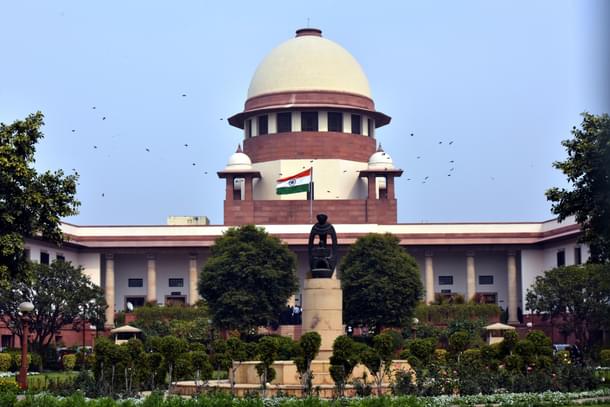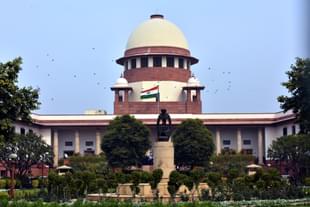News Brief
Affirmative Action Not Limited To Reservation Only: Supreme Court Observes During Maratha Quota Case Hearing
IANS
Mar 23, 2021, 08:02 AM | Updated 08:02 AM IST
Save & read from anywhere!
Bookmark stories for easy access on any device or the Swarajya app.


The Supreme Court on Monday (22 March) said that state governments should take more steps to promote education and establish institutes for the uplift of socially and educationally backward classes, insisting that affirmative action cannot be limited to just reservation.
The observation was made by a five-judge Constitution bench headed by Justice Ashok Bhushan and comprising Justices L. Nageswara Rao, S. Abdul Nazeer, Hemant Gupta and S. Ravindra Bhat during the hearing of petitions against the validity of 2018 Maharashtra law granting reservation to Marathas in education and jobs.
"Why not promote education and establish more institutes... eventually things have to move beyond reservation. Affirmative action is not just reservation. There has to be something more," it said.
Senior advocate Kapil Sibal, representing the Jharkhand government, said the court should leave it to states and the Central government the query in connection with the affirmative action and the way forward. He submitted there isn't any straight jacket formula for implementing reservation uniformly, as it differs from state to state in the country depending on the population.
Citing statistics regarding OBCs and SC/STs in government jobs and vacancies, he said that establishing more institutes involves financial resources of the state, ability to establish schools and find teachers these schools. He added that Indra Sawhney case was decided in tumultuous times, as the nation was looking for peace. It was a balancing act and not a judicial exercise, he said.
The apex court is also examining whether 1992 verdict in Indra Sawhney case, capping reservation at 50 per cent, should be examined by a larger bench "in the light of subsequent Constitutional amendments, judgments and changed social dynamics of the society".
Earlier during the day, senior advocate P.S. Patwalia, representing the Maharashtra government, submitted that issue of Maratha reservation is a "burning issue" and a big social issue in the state.
The apex court will continue to hear the arguments in the matter on Tuesday.
Last week, senior advocate Mukul Rohatgi, representing the Maharashtra government, had said that capping the quota at 50 per cent needed a re-look, as circumstances have changed and cited that 1992 was premised on the census of 1931. He said the population has increased many folds since then.
The petitions in the top court have challenged the Bombay High Court verdict which upheld the Marathas reservation in admissions and government jobs.
(This story has been published from a wire agency feed without modifications to the text. Only the headline has been changed.)





